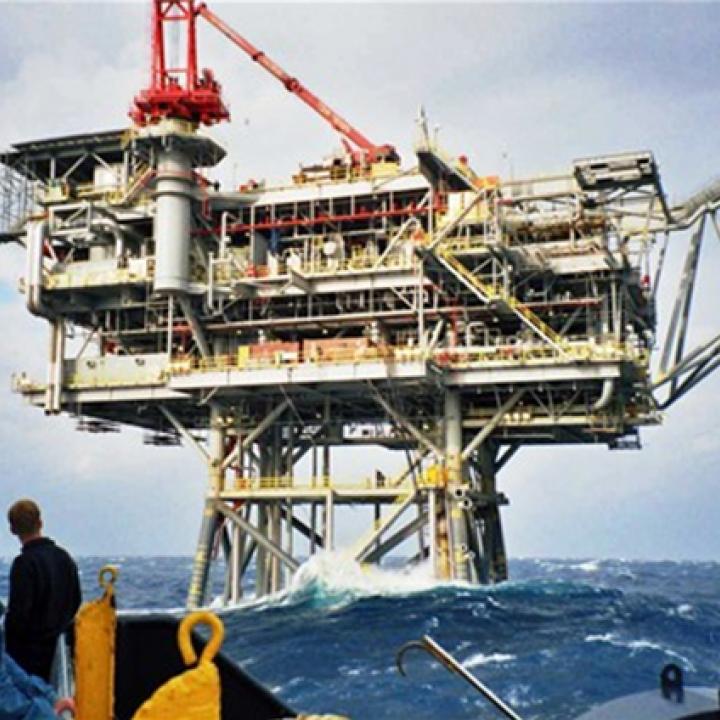
- Policy Analysis
- Policy Alert
Israel Planning to Export Gas via LNG Ship

The option, which would take several years to develop, would reduce or even remove the current need to export gas via Egypt.
The war in Ukraine has changed the international natural gas market, increasing prices and demand alike in Europe. Cooling gas into a liquid is an expensive process, usually meaning the market must encompass much longer distances than those reachable by pipeline to be commercially viable. Hence the decision by Chevron and other companies exploiting Israel’s largest offshore field, Leviathan, to proceed with a basic engineering study, the next step after assessing the feasibility of producing liquefied natural gas (LNG).
Apart from relatively small quantities piped to neighboring Jordan, Israel’s only current export market for its offshore gas is Egypt, where it is used to generate domestic electricity, freeing up Egyptian gas for the more lucrative export market.
The consortium of Chevron, which operates Leviathan, and two Israeli companies (NewMed Energy and Ratio Energies), which actually own the majority of the license, will pursue decisions for commercial reasons, but the prospect of LNG exports also has important geopolitical dimensions. Being dependent on a single main export route (Egypt) is risky, especially because such export choices involve multiyear commitments. LNG exports are attractive because tankers do not cross sovereign borders and can go anywhere in the world.
As currently described, an Israeli LNG project would involve building a multibillion-dollar specialist vessel, of which fewer than six so far operate across the world. Shipyards in South Korea and Singapore have the rare expertise. Parallel to this, the Leviathan field’s production needs to be expanded, involving more seabed pipelines from the field, seventy-five miles offshore, to the production platform, five or so miles out to sea from Zichron Yaakov, south of Haifa. (The small and unexploited Aphrodite field, shared by Cyprus and Israel, could also be linked in.)
The LNG vessel would be anchored close to the platform, and LNG tankers would be moved alongside it for loading before they travel to destinations in Europe or Asia. (Israel’s environmental lobby will likely be vociferously opposed to the impact on the local sea view.)
In the shorter term, the Leviathan consortium is pressing Egypt to change the terms of its current deals, which grant the companies revenues based only on the low domestic price. The companies have further been asking Egypt to accept a “tolling” deal, which means the Leviathan gas would be liquefied for a fee at the Shell-operated Idku LNG plant on the Nile Delta, and then exported for sale at international prices vastly more favorable than those in Egypt.
A factor in the decision to examine the LNG option more closely may well have been the October 2022 U.S.-mediated agreement on a maritime border between Israel and Lebanon, which has in essence been accepted by Lebanon’s Iran-supported Hezbollah. But the threat represented by Hezbollah’s rockets is sleeping rather than dead, probably explaining why an LNG vessel would be positioned close to the Leviathan platform—which is already protected by Israeli antimissile naval units.
In overall European demand, Israeli LNG will make only a small difference. The amount being discussed is an extra 9 billion cubic meters a year, when total European demand was, until the crisis, around 400 bcm annually. Yet if the LNG idea gathers pace, there will be disappointment from Greece and Cyprus, which have been backing a proposal for an undersea pipeline from Israel to Crete and then on to the European mainland. But this idea has already been discarded on cost and practicality grounds by Washington. Nevertheless, Greek, Cypriot and therefore perhaps also European Union diplomatic pressures will likely be added to the engineering and commercial challenges for the LNG plans.
Simon Henderson is the Baker Fellow and director of the Bernstein Program on Gulf and Energy Policy at The Washington Institute.



